These headlines, from just one morning, illustrate the huge amount of information regarding the degradation of the biosphere flooding us every day. I think they support my contention that we need a marketing focused entity to digest, package and distribute the underlying messages. (see previous post)
Global methane emissions rising at fastest rate in decades, scientists warn. Researchers call for immediate action to reduce methane emissions and avert dangerous escalation in climate crisis.
Kamala Harris will not ban fracking if she wins White House, campaign says. Harris, who had previously urged fracking ban, plans to highlight climate contrast between Democrats and Trump.
[This election is now less than 100 days away. A Republican win in any of the federal races, presidential, senate or house, will severely impact environmental action worldwide. State and local results will also have effects well beyond their borders]
Firefighters continue battle against more than 100 blazes burning in the US. Many fires ignited by weather, with climate crisis increasing lightning strikes amid blistering heat and dry conditions
Greening the desert: is Sisi’s grand plan using up all of Egypt’s water? The ‘Future of Egypt’ envisages turning tracts of desert into farmland to grow crops for export. But with sky-high food price inflation and a water deficit, critics doubt it is viable
Costly climate ‘solutions’ look like more pollution in Louisiana’s ‘Cancer Alley’
How ‘world’s first oil town’ is wrestling with fossil fuel legacy. Cop29 host Baku has cleaned up since its Black City days – but this summit needs to do more than whitewash the facade of a petrostate.
[My take on COP28, in Dubai, was that the forces which compel us to degrade our biosphere manage to exert control in everything. “Tens of thousands fly to COP 28 – which is somewhat ironic in itself – (… and these forces) stack the deck with fossil fuel enthusiasts.” One of the outcomes, hailed as a great success, were initial pledges of $400 million to compensate poorer countries for damages related to climate change. Which is a trivial amount given the costs now and into the future. At much the same time a US foundation pledged $500 million to fund various monuments. I know this is a false equivalence. I know the monuments are a worthy, beautiful cause. But really, where is the justice in this? (see previous post)]
Inside the battle for top job that will decide the future of deep-sea mining. Marking a pivotal moment for the fate of the barely known ecosystems on the ocean floor, 168 nations will decide this week who will head the International Seabed Authority.
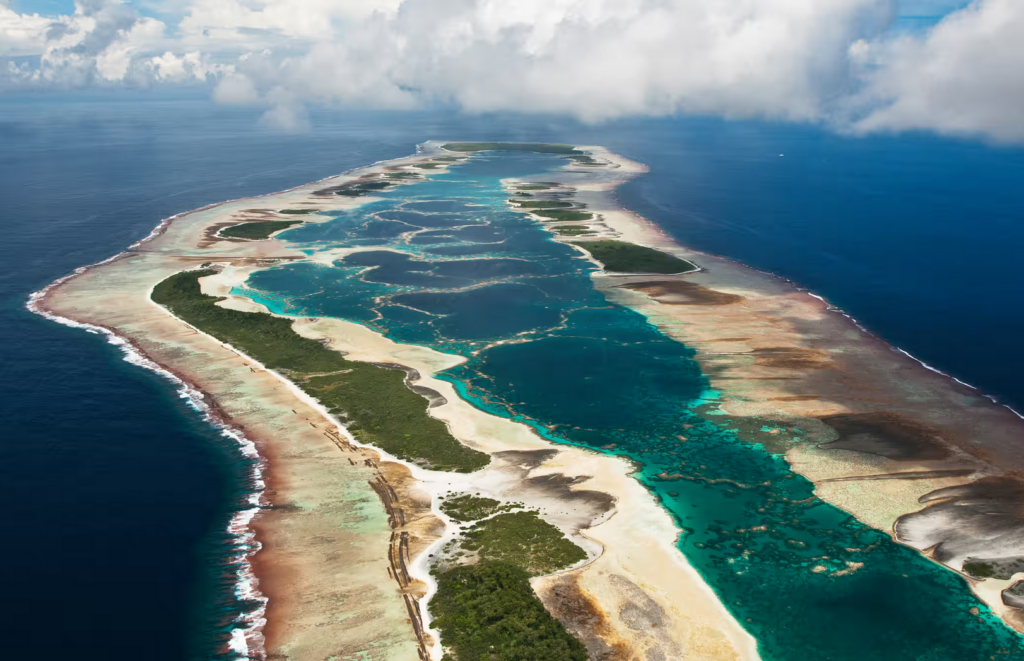
‘Morally, nobody’s against it’: Brazil’s radical plan to tax global super-rich to tackle climate crisis. A 2% levy would affect about 100 billionaire families, says the country’s climate chief, but the $250bn raised could be transformative.
‘Your body is completely drained’: US workers toil in heatwaves with no protections. Though 2,300 people in the US died from heat-related illness in 2023, workers await robust protection laws.
Australia’s north-west reefs teem with life – but they are also at the centre of a massive fossil fuel expansion.
Unseasonal rainfall leaves Seine safe swimming plan in tatters at Paris 2024
As record heat risks bleaching 73% of the world’s coral reefs, scientists ask ‘what do we do now?’ A vast array of solutions are being worked on but experts urge a ‘fundamental rethink’ as temperatures are forecast to climb even higher in coming decades.
‘It doesn’t need to be one or the other’: balancing brolgas and windfarms in Victoria. Victorian brolga numbers have shrunk due to habitat loss and drying wetlands. Now conservationists are calling for careful planning of windfarms.
A ‘scare campaign’ over national parks? The fight over the future of Victoria’s forests. Conservationists say the push to protect forests and endangered species with a giant national park has become mired in ‘disinformation’
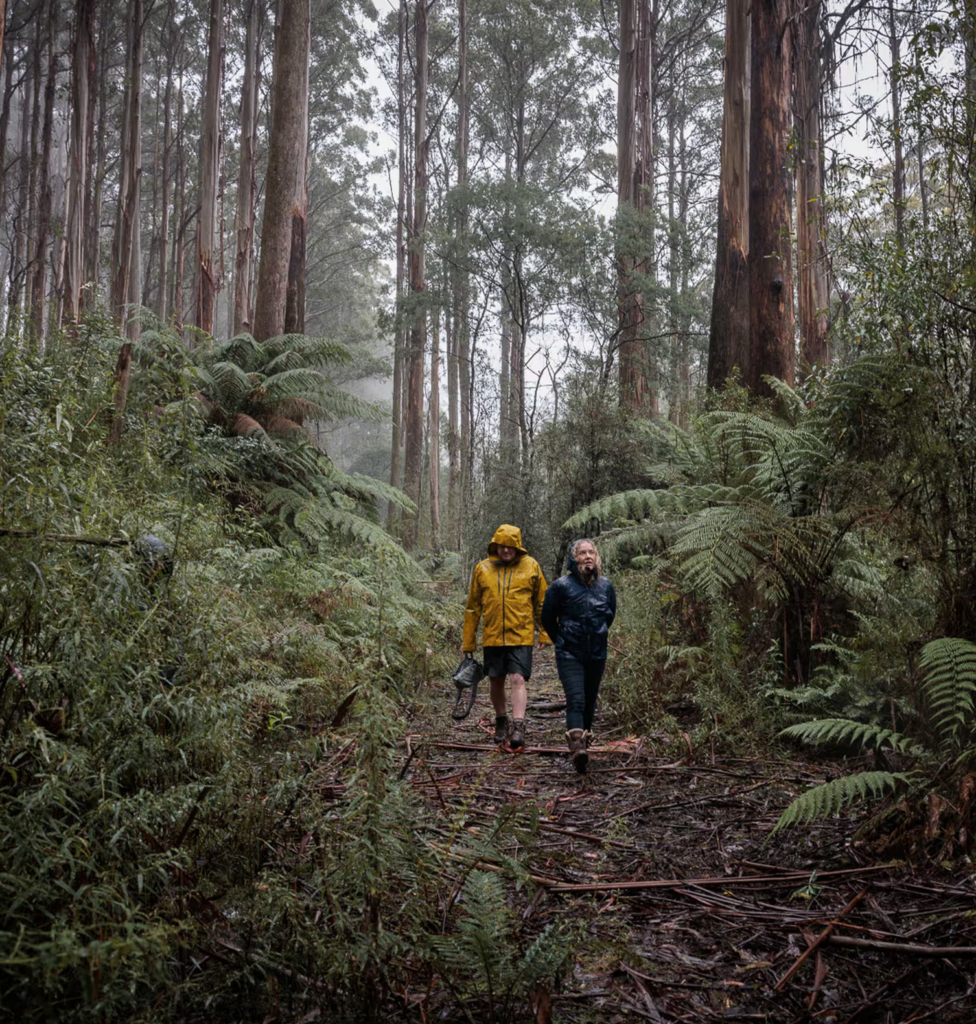
‘No one understands local issues better’: rural councils call for greater role in renewable energy transition. NSW, Victoria and Queensland local governments have limited roles in approving developments but advocates say they’re best placed to keep communities on side.
Wind and solar energy overtake fossil fuels to provide 30% of EU electricity. Report finds 13 member states generated more energy from wind and solar power than coal and gas for first time in 2024.
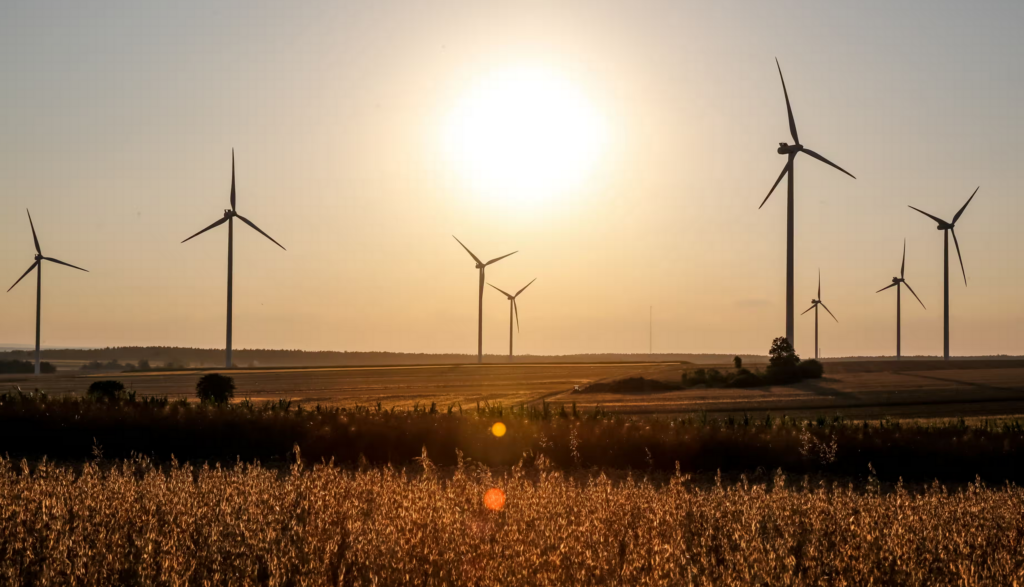
‘Warning sign to us all’ as UK butterfly numbers hit record low. Conservation charity raises alarm over climate crisis after wet spring and summer dampen mating chances.
BP to hand investors $7bn this year after profit beats forecasts. Oil and gas company to increase dividend and buy-backs as quarterly profit hits $2.8bn.
Wildfire smoke may increase the risk of dementia, study finds. As blazes spew smoke across western US, research shows it may be worse for brain health than other types of pollution.
…and more fire, more war:
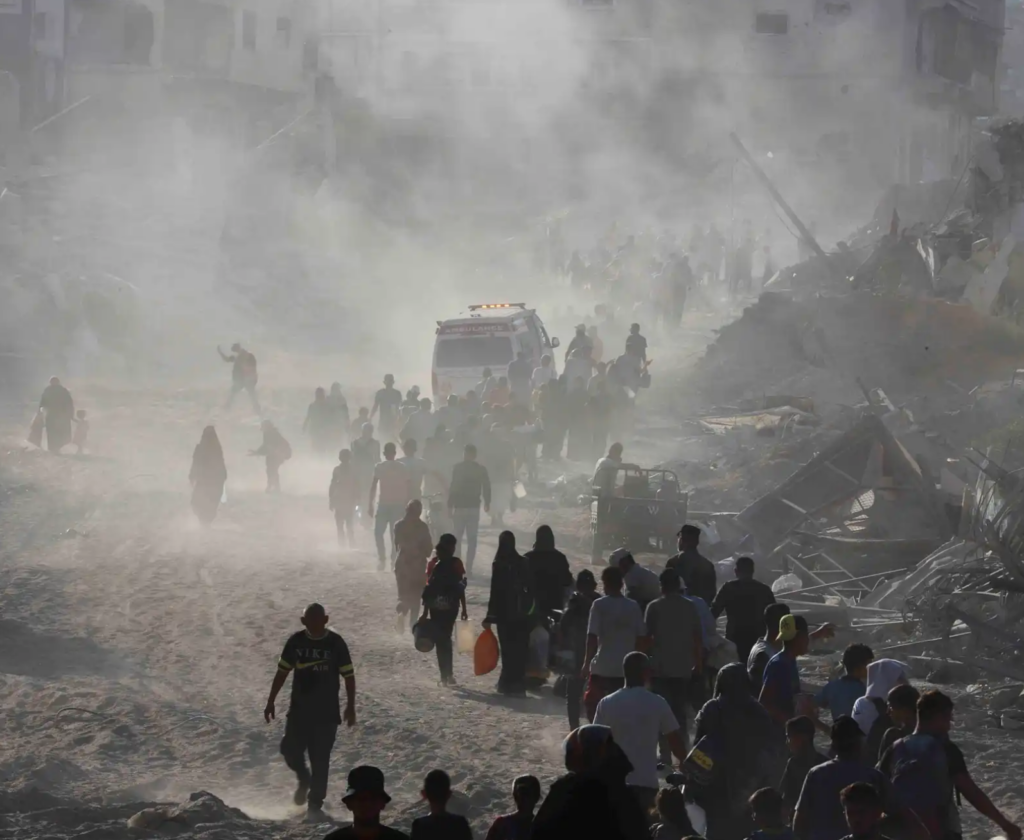

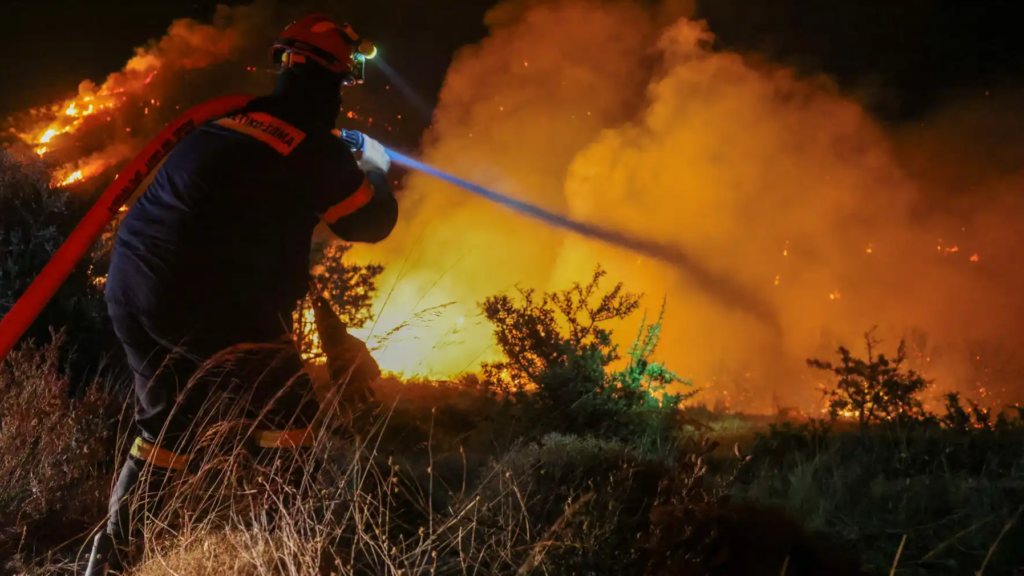
We can blindly continue like this, driven by national and economic impulses, or unite and halt the degradation of the biosphere. Your choice.
